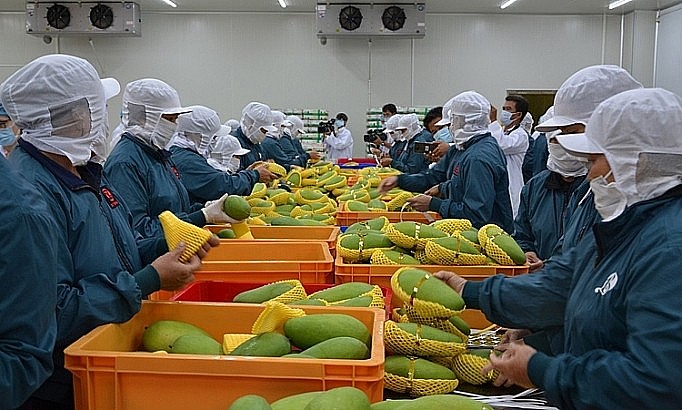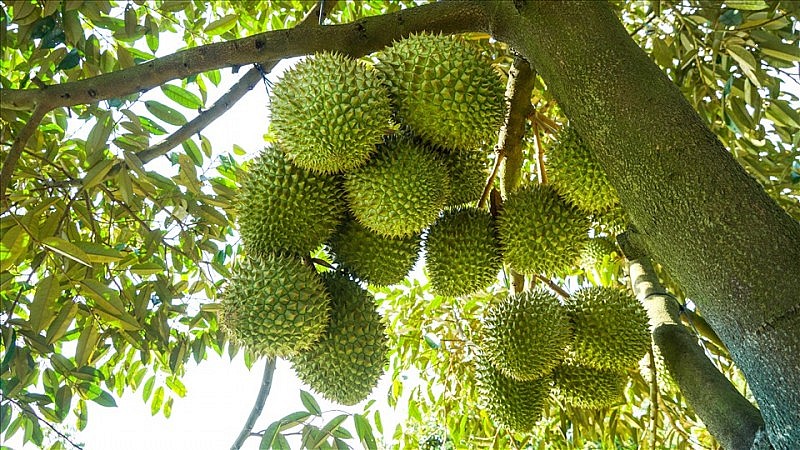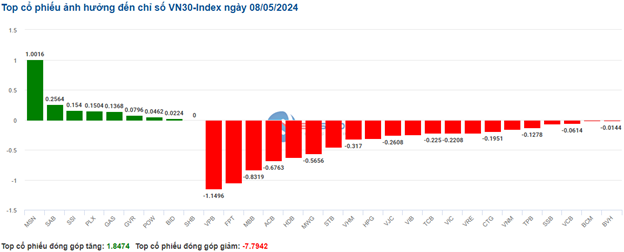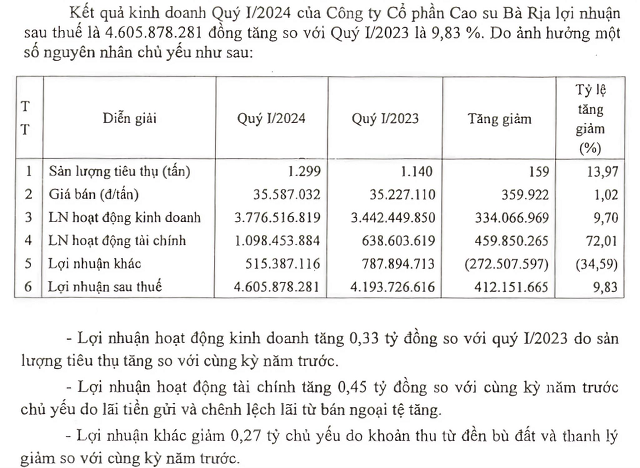Vietnam’s Fruit Exports Soar Despite Quality Concerns
The Vietnamese Ministry of Agriculture and Rural Development estimates that fruit and vegetable exports reached $520 million in April 2024, a 33.9% increase compared to the same period in 2023. In the first four months of the year, the industry generated $1.804 billion in exports, a 32.1% increase year-over-year.

Fruit and vegetable exports surpassed $1.8 billion in the first four months of 2024.
The fruit and vegetable export sector enjoyed a strong performance in 2023, and the growth momentum continued in the first four months of 2024. Buoyed by robust demand, the industry generated $1.3 billion in revenue during the first quarter of 2024. This marked the first time that quarterly fruit and vegetable exports exceeded $1 billion.
Notably, durian remains a major contributor to the industry’s export earnings. In 2023 alone, durian exports accounted for over $2.2 billion of the industry’s total revenue of $5.6 billion.
Vietnam’s top fruit and vegetable export markets during the first four months of 2024 all experienced positive growth. China emerged as the largest export market, with a value of $759.4 million, representing a 32.4% increase year-over-year. South Korea followed with $74.6 million (up 59.3%), the United States with $67.7 million (up 33.9%), and Thailand with $47.6 million (up 112%).
While the export figures paint a rosy picture, concerns about the quality of Vietnamese fruit exports loom over the multi-billion dollar industry. The issue of high-priced durians, coupled with the recurring problem of immature durian exports, has resurfaced in the Japanese market.
According to a Vietnamese durian importer in Japan, the company purchased six tons of frozen, segmented durians from a supplier in Lam Dong province in early March 2024. Upon arrival, the importer was forced to liquidate and destroy nearly 2.5 tons of the shipment. Japanese retail partners complained about the bland and sour taste of the durians, while some boxes contained black mold-like substances.
Prior to the incident, the importer had contracted with a Vietnamese partner to purchase grade B fresh durians for freezing and segmentation. Typically, such shipments have a minimum brix sweetness level of 26%. However, an inspection of the returned consignment revealed that the durian segments had brix levels ranging from only 13 to 19%.
The problem not only resulted in financial losses for the importer but also damaged its reputation with Japanese retailers due to the substandard quality of the product, leading to a full recall.

The problem of immature durian exports has resurfaced, tarnishing the reputation and image of Vietnamese fruit.
While durian exports face challenges in Japan, Vietnamese chili peppers are facing increased inspections in South Korea and Taiwan. According to the Vietnamese Trade Office in South Korea, the office received a letter from the South Korean Ministry of Food and Drug Safety (MFDS) announcing the reinstatement of mandatory inspections for certain imported foods entering the country.
Citing the need to enhance food safety awareness among importers and ensure the safety of imported food products, the MFDS extended the inspection order under Article 22 (Conduct of Inspection) of the “Special Act on the Control of the Safety of Imported Food Products” and the “Ordinance on Inspection Order for Imported Foods.”
After reviewing data showing high non-compliance rates and potential hazards, the MFDS decided to reinstate mandatory inspections for certain food items.
For products imported from Vietnam, the food item subject to inspection is chili peppers (Cayenne, Capsicum, Chili Pepper, Red Pepper, Tabasco). The inspection covers seven pesticides: Diniconazole, Tolfenpyrad, Tricyclazole, Permethrin, Dimethoate, Isoprothiolane, and Metominostrobin.
The MFDS extended the inspection order from March 31, 2023, to March 30, 2025 (instead of March 30, 2024), due to ongoing non-compliance with standards and specifications by imported food products. The list of food items subject to inspection is available on the MFDS website (http://www.mfds.go.kr) in accordance with Article 3 of the “Ordinance on Inspection Order for Imported Foods.”
Additionally, Korean individuals or businesses intending to import food products under the inspection order must submit a test report issued by MFDS-approved laboratories at the time of import declaration.
Similarly, the Vietnam Economic and Cultural Office in Taipei has announced that Taiwan has strengthened its inspection of imported chili peppers and chili products.
Market Compliance: Key to Expanding Vietnamese Fruit Exports
According to experts, most markets are tightening their quality standards for imported agricultural products. While the export market for Vietnamese fruit and vegetables remains substantial, achieving sustainable growth requires a commitment to enhancing the quality of Vietnamese produce.
Dang Phuc Nguyen, General Secretary of the Vietnam Fruit and Vegetable Association, emphasized, “We encourage producers to maintain quality. If we have high quality, we won’t have trouble finding buyers.”
In 2024, various estimates project Vietnam’s fruit and vegetable exports to reach between $6 billion and $6.5 billion. These projections are supported by the negative impact of El Niño, which has reduced the global supply of fruit and vegetables. This presents an opportunity for Vietnam, provided it can offer high-quality products that meet the demands of discerning markets.
However, this opportunity is contingent upon compliance with market requirements. Implementing and managing designated production areas, establishing sustainable export-quality standards for raw materials, controlling harvesting, and staying informed about technical requirements from importers will enable Vietnamese agricultural products to penetrate major markets.
Ngo Xuan Nam, Deputy Director of Vietnam’s SPS Office, stated that businesses and farmers must adhere to regulations regarding food safety and animal and plant health. Failure to comply with these regulations will result in immediate warnings from the market.
China, the largest export market for Vietnamese fruit and vegetables, continues to have high demand. Vietnam is currently in talks with Chinese authorities to expand the list of products eligible for official export to China. Simultaneously, Vietnamese businesses continue to explore other major markets, such as the United States, the European Union, Australia, and South Korea.
Returning to the issue of durian, it is projected that exports will grow further in 2024 as the China Customs General Administration approves more durian growing and packaging facilities. Nguyen Dinh Tung, General Director of Vina T&T, acknowledged the strong market demand for durian. However, recent incidents involving immature and rotten durian exports, while representing a small proportion of overall shipments, have negatively impacted the image and quality of Vietnamese durian. The challenge lies in establishing a standardized process for government agencies to control quality. This process must address the ongoing issue of immature durian exports.
|
According to the Southern Fruit Research Institute, a subsidiary of the Vietnamese Academy of Agricultural Sciences under the Ministry of Agriculture and Rural Development, Vietnam’s durian cultivation area expanded from 33,400 hectares in 2016 to over 112,000 hectares in 2022. In 2023, the durian growing area continued to expand, reaching approximately 127,000 hectares. Several localities have accelerated the expansion of durian plantations in recent years. The total durian cultivation area in Vietnam now exceeds the target of 50,000 hectares set by the Fruit Tree Development Project until 2025 and 2030 (Decision No. 4085/QD-BNN-TT dated October 27, 2022, by the |







































